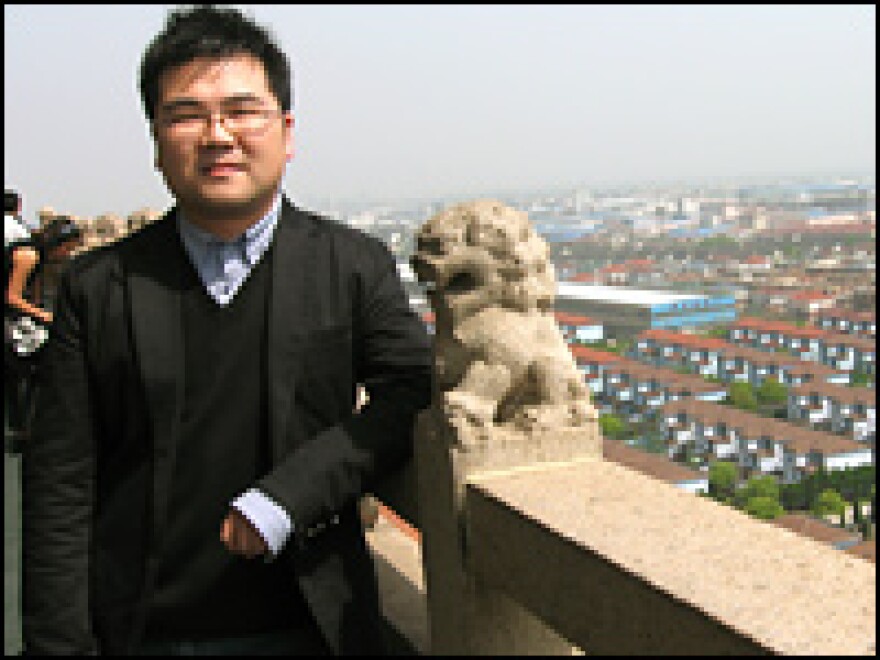



On average, the people in China's countryside are poorer than their cousins in the city -- and they have fewer prospects for benefiting from the nation's much-vaunted economic growth.
But one village a few hours' drive away from Shanghai has come up with its own route to prosperity and is providing a model for the development of other rural areas.
Huaxi village in Jiangsu province doesn't feel like a Chinese village at all. Visitors are greeted by row upon row of white houses with red roofs, and it looks more like American suburbia transplanted to the Chinese countryside.
Hundreds of official tour groups flock to Huaxi each day to learn about the village, even visiting the homes of "ordinary" residents. Sun Haiyan lives in one of these homes, which has three bedrooms and three living rooms, complete with leather sofas and crystal chandeliers. He also has three bathrooms, a card room, a gym with two treadmills, and five or six TVs -- he can't quite remember how many.
Wu Hao, 26, is another happy Huaxi resident. He has just returned from studying in New Zealand and runs one of the village's import-export businesses.
"As people know, Huaxi is the No. 1 village in our country," he says.
It's hard to believe that Huaxi village was once poor. The secret to its phenomenal success was its move from agriculture to industry. Thirty years ago, the village was starting to behave more like a city -- and look like one too, as it built factory after factory.
Wu Hao's family was the driving force behind the move. His uncle, Wu Xie En, is currently the party secretary, the village's head honcho.
"Huaxi is a small place. If all we did was farm, at best we'd just be able to feed and clothe ourselves," Wu says. "We wouldn't be able to get rich. "
This move away from agriculture is the reason the villagers of Huaxi are so rich. On the floor of one of the village's numerous factories, hundreds of workers in white coats sit at sewing machines stitching dark blue jackets. This textile shop is part of Huaxi's business empire. The village now owns 80 factories. It has expanded to swallow up 16 neighboring villages and employ thousands of migrant laborers. The original villagers are now enjoying the rewards of that strategy. Last year, they earned $10,000 per person, 25 times the national average for farmers.
And Huaxi keeps on growing. Construction is under way on a $2.5 million clock tower surrounded by fountains that will shoot water 17 stories high.
Many of the tour-group visitors are government officials hoping to learn from Huaxi's success. "If this is socialism, we want it, too" is the general attitude. But village chief Wu Xie En says it's not a one-size-fits-all formula.
"If industry works for your village, then do that," he says. "If business is your thing, then do that. If farming works for you, then take that route. Learning from Huaxi doesn't mean doing exactly what we're doing."
The last stop on a tour -- a high-tech agricultural zone -- illustrates one vision of the future of China's countryside. It's a massive greenhouse stuffed with bizarre breeds of vegetables; there are purple chili peppers, a pumpkin that weighs 20 pounds, and even a tree that grows both tomatoes and eggplant. A lone gardener waters some orange trees as hordes of tourists tramp past. It seems that in China's model village of the future, farming has become little more than a tourist attraction.
Copyright 2022 NPR. To see more, visit https://www.npr.org.



